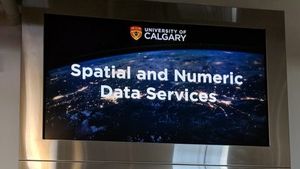We are pleased that Herbert Van de Sompel will be talking about Memento, a joint project of Los Alamos National Laboratory and Old Dominion University, at OCLC later this month. We will make a webcast available; see the details here. If you are in Central Ohio, come by ….
Here is a recent paper describing the work:
The Web is ephemeral. Many resources have representa-
tions that change over time, and many of those represen-
tations are lost forever. A lucky few manage to reappear
as archived resources that carry their own URIs. For ex-
ample, some content management systems maintain version
pages that reflect a frozen prior state of their changing re-
sources. Archives recurrently crawl the web to obtain the
actual representation of resources, and subsequently make
those available via special-purpose archived resources. In
both cases, the archival copies have URIs that are protocol-
wise disconnected from the URI of the resource of which
they represent a prior state. Indeed, the lack of temporal
capabilities in the most common Web protocol, HTTP, pre-
vents getting to an archived resource on the basis of the
URI of its original. This turns accessing archived resources
into a signicant discovery challenge for both human and
software agents, which typically involves following a mul-
titude of links from the original to the archival resource,
or of searching archives for the original URI. This paper
proposes the protocol-based Memento solution to address
this problem, and describes a proof-of-concept experiment
that includes major servers of archival content, including
Wikipedia and the Internet Archive. The Memento solution
is based on existing HTTP capabilities applied in a novel
way to add the temporal dimension. The result is a frame-
work in which archived resources can seamlessly be reached
via the URI of their original: protocol-based time travel for
the Web. [Memento]



